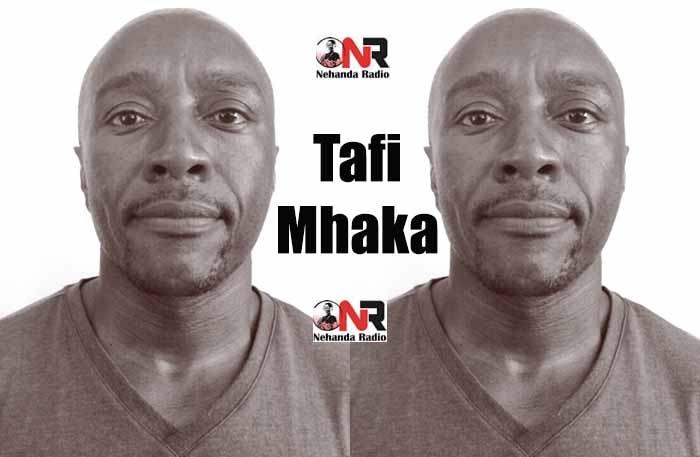By Tafi Mhaka
Citing government’s dismal human rights record, as well as “bureaucratic wrangling and bungling and inefficiencies, incompetence, not enough change agents, basic fear of change as well as an imaginative deficit that cannot see beyond the present”, Petina Gappah, a lawyer and writer, last week left her position as a trade and investment adviser to President Emmerson Mnangagwa.

However, Gappah absolved Mnangagwa from the grim mess gripping government. Instead, Gappah chose to blame government officials who want to “eat” for derailing a “difficult transition”.
But, as Zimbabweans can attest to, Mnangagwa’s leadership has been anything but exemplary, visionary or altruistic. His deployment of ZNA soldiers who killed 6 civilians on August 1, 2018 mimicked former president Robert Mugabe’s intolerance for dissent, and promptly set the tone for the second republic’s awful human rights record.
Still, Gappah disingenuously presupposes that a transition, despite mounting evidence to the contrary, is underway. That Mnangagwa’s track record, as a senior civil servant, can withstand vigorous scrutiny. However, what, really, about Mnangagwa’s tenures as state security minister, speaker of parliament, defence minister, housing minister, or justice minister, stands out as remotely progressive?
Zanu-PF elites like Gappah, drunk on the sweet, intoxicating taste of power Munhumutapa Building’s principal politician wields, forever indulge in subjective recollection.
They, most liberally, and unashamedly, reimagine Mnangagwa’s past and indeed present party presidency as institutional paragons of democracy, productivity and progression. No doubt Zanu-PF elites sleep well at night, everyday, safely cocooned in self-serving, pretentious satisfactions about Mnangagwa’s strength of character and democratic morality.
But, wasn’t it Mnangagwa that helped to expel an authentic, progressive reformer in Simba Makoni, in February 2008? To be sure, a lack of robust, dynamic and transparent debate and unfettered rivalry within Zanu-PF’s electoral processes have enabled an impoverished preponderance of cultish mannerisms that bleeds for democratic intervention.

Zanu-PF’s resolution to nominate Mnangagwa as its 2023 presidential election candidate at the party’s National People’s Conference held in Esigodini last December is atypical of strongman politics, and undoubtedly a blatant and ominous resurrection of Mugabe’s destructive political choreography. Devoid of any empirical analysis, any probable clear, sound judgement based on a quantifiable performance, that premeditated move emphasises Zanu-PF’s tenuous relationship with constitutional culpability.
Strong, democratic leaders flourish on displaying substantial achievements and standing accountable for their mistakes at regular, credible, free and fair polls. Weak leaders hide behind thespian exhibitions of grand popularity and survive on pushing unsubstantiated promises of potential delivery. Unfortunately, not only Zanu-PF is suffering from ever-expanding moribund regression, Mnangagwa’s ludicrous 2023 candidature extenuates a lack of accountability and broad ineptitude throughout government.
Zanu-PF structures dominate national, provincial and local government structures. There nobody, from top to junior civil servants, from deputy defence minister Victor Matemadanda to Bulawayo City Council town clerk Christopher Dube, is seized with resolving matters to do with service delivery, human rights and civil accountability.
The sheer ability to attain, enjoy and retain power, by whatever means necessary, has subjugated the need to dispense profoundly efficient civil service and observe basic constitutional obligations. Zanu-PF elites have, to quote Gappah, been “eating” since 1980. Why should that immorally profitable entitlement, after so many back-to-back ‘wins’ in strongly disputed, violent presidential and general elections, disappear all of a sudden?
This stage-managed democracy and legitimacy has paralysed the ruling party’s ability to truly reflect, transform and deliver on its promises – a seemingly herculean feat that it may only realise as an opposition party. Ominously, for ordinary, hardpressed Zimbabweans, a Zanu-PF party cloaked in democratic pretensions, but severely hamstrung by illiberal proclivities, is a massive liability to Zimbabwe’s democratic progression and economic stability.
Until Zanu-PF abandons the quaint notion that democratic outcomes, at both party and national levels, can be contrived, without suffering social unrest and devastating economic consequences, undisputed legitimacy will remain elusive.
So, despite the MDC Alliance losing a vital Constitutional Court challenge last year, Zanu-PF’s tremendous reluctance to enact extensive media and political reforms, to obviously create a level playing field before the July 30 2018 elections, can’t be casually dismissed.
Neither can Mnangagwa’s shaky standing, disastrous management skills and qualified incompetency before and after November 2017. Remember that between April 1980 and November 2017, especially in the latter years, Mugabe’s ‘revolutionary’ leadership wasn’t the problem.
Lazy, corrupt and clumsy ministers, Zanu-PF elites said, were damaging Mugabe’s unquestionably upstanding democratic character and economic agenda. Fast forward to August 2019, both Zanu-PF’s old and freshly recruited elites have begun singing the same old song for their supper. Mnangagwa isn’t the problem, they say, the people around him are.





